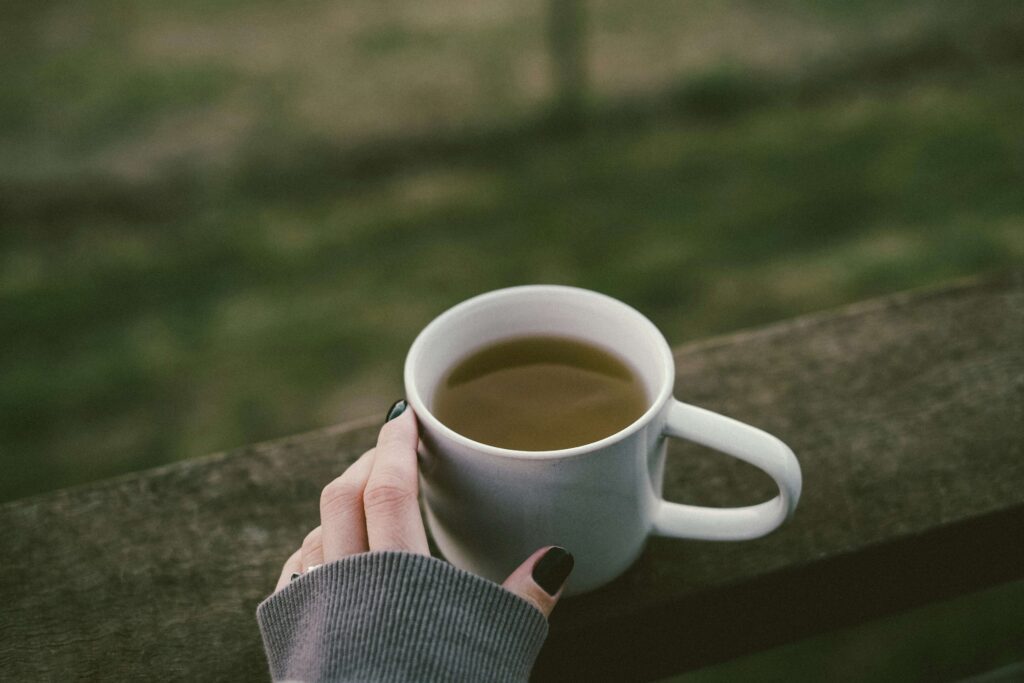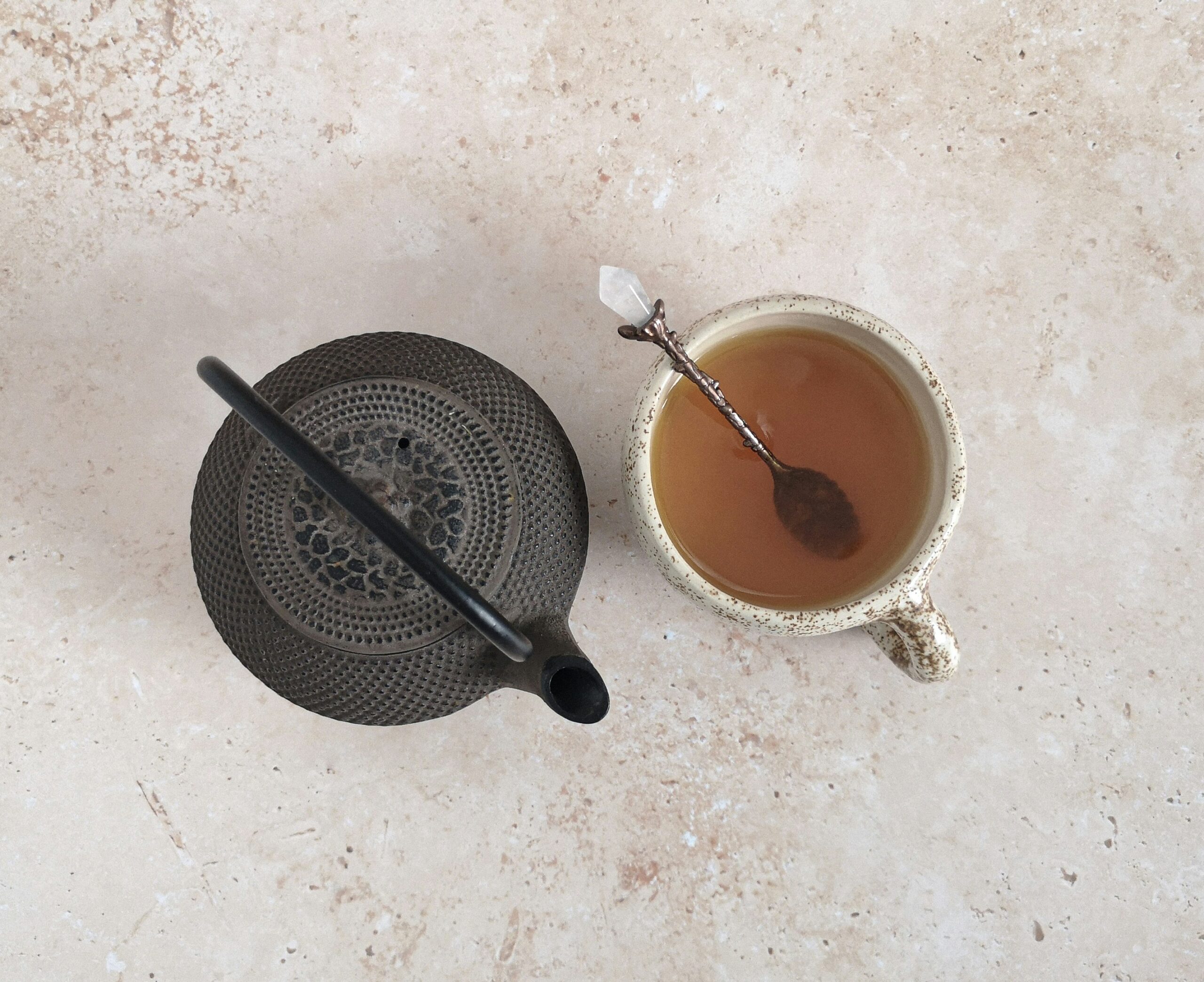
Menopause can be a challenging phase filled with various symptoms like hot flashes, mood swings, and sleep disturbances. While conventional treatments are available, many women are turning to herbal tea as a natural remedy for menopause symptoms. Not only do these teas offer relief, but they also provide a comforting daily ritual.
Many herbal teas have properties that can help balance hormones and ease discomfort. For instance, teas made from black cohosh or wild yam are known for their hormone-regulating benefits. Drinking these herbal teas regularly can be a soothing way to support your body’s transition during menopause.
In addition to herbal teas, it’s beneficial to incorporate a holistic lifestyle approach. This includes maintaining a balanced diet, exercising, and reducing stress. Combining these strategies can significantly enhance your overall well-being during menopause.
Key Takeaways
- Herbal teas can help manage menopause symptoms.
- Certain herbs like black cohosh and wild yam are particularly effective.
- A holistic approach improves overall well-being.
Understanding Menopause
Menopause marks the end of menstrual cycles and involves changes in hormone levels. It’s important to understand its symptoms, different stages, and the impact it can have on health and lifestyle.
Symptoms and Hormonal Changes
During menopause, you might notice several symptoms triggered by changing hormone levels. Hot flashes and night sweats are common and can disrupt your sleep. Your mood might also change, leading to mood swings. Vaginal dryness can cause discomfort and affect your sex life. Weight gain is another frequent issue due to a slower metabolism and hormonal shifts.
Stages of Menopause
Menopause occurs in three stages: Perimenopause, Menopause, and Postmenopause. Perimenopause is when your hormone levels start fluctuating, and you might start experiencing menopausal symptoms like irregular periods. Menopause is defined as the point when you haven’t had a period for 12 months. Postmenopause is the period after menopause, where symptoms like hot flashes might lessen, but the risk for health issues such as osteoporosis can increase.
Impact on Health and Lifestyle
Menopause can affect various aspects of your life and health. It might influence your sleep patterns due to night sweats and hot flashes, which can lead to fatigue. Changes in hormone levels can lead to bone density loss, increasing the risk of osteoporosis. Sexual function may also be impacted due to vaginal dryness and reduced libido. Understanding and managing these effects can help improve your quality of life during this transition.
For more detailed information on the various symptoms and treatments, you might find “Understanding menopause” and “The Natural Menopause Handbook” helpful.
Natural Herbal Remedies for Menopause
Menopause can be a challenging time with symptoms like hot flushes, night sweats, and mood swings. Natural remedies, especially herbal teas, can provide relief and support during this phase.
Herbal Teas and Menopause Symptom Relief
Herbal teas offer a soothing way to manage menopause symptoms. Chamomile is known for reducing anxiety and aiding sleep. Sage tea helps reduce hot flushes. Valerian is used to ease sleep problems, while Black Cohosh tea can help with night sweats.
Red Clover tea contains phytoestrogens, which may balance hormone levels. Fennel and Licorice teas can also be beneficial in relieving symptoms.
Common Herbs for Menopausal Support
Many herbs can support your body during menopause. Dong Quai is often called “female ginseng” and helps with hormonal balance. Evening Primrose oil is another popular choice, known for easing breast pain and reducing hot flushes.
Hops can help with sleep disturbances and anxiety. Regular use of these herbs can provide steady support.
Safety and Efficacy of Herbal Remedies
When using herbal remedies, safety is crucial. Always consult with a healthcare provider before starting any new treatment. Some herbs can interact with medications or have side effects. For example, Licorice can raise blood pressure, and Black Cohosh may cause liver issues if used long-term.
Herbal remedies are generally safe when used correctly. Make sure to use high-quality products and follow dosing recommendations.
Benefits of Specific Herbs
Specific herbs can offer various benefits for women experiencing menopause, such as balancing hormones, improving sleep, and reducing inflammation.
Phytoestrogens and Their Effects
Phytoestrogens are natural plant compounds that mimic oestrogen in the body. Some herbal teas contain these compounds and can help manage menopause symptoms. Red clover is rich in phytoestrogens and may reduce hot flushes. Black cohosh root is another herb known for its hormone-balancing properties, potentially easing night sweats and mood swings.
Soy isoflavones, found in some teas, can also help regulate hormone levels. These herbs offer a natural alternative to hormone replacement therapy (HRT), providing relief from hormonal imbalances without synthetic hormones.
Herbs for Sleep and Anxiety
Many women experience insomnia and anxiety during menopause. Herbal teas like chamomile tea and valerian root can promote relaxation and improve sleep quality. Chamomile tea is renowned for its calming effects, helping you to unwind before bed.
Valerian root is an effective herb for reducing anxiety and can improve overall sleep duration and quality. Lemon balm is another herb that can soothe anxiety and aid in better sleep. These herbs work naturally to help you navigate the sleep disturbances common during menopause.
Anti-Inflammatory Herbs
Inflammation can worsen menopause symptoms. Some herbs possess anti-inflammatory properties, which can offer relief. Turmeric is known for its potent anti-inflammatory effects and can be enjoyed as a tea to reduce joint pain and inflammation.
Ginger also has significant anti-inflammatory benefits and can help alleviate digestive issues often experienced during menopause. St. John’s wort can reduce inflammation and may improve mood, helping to manage menopausal depression.
Using herbal teas that contain these herbs can be a simple and beneficial way to address various symptoms of menopause.
Interactions and Considerations
When considering herbal teas for menopause, it’s important to be aware of various factors such as how these teas may interact with medications, the caffeine content, and any potential side effects.
Herbal Teas vs Medications
Herbal teas like black cohosh and red clover are popular for managing menopause symptoms. However, these can interact with medications. For example, black cohosh may interfere with hormone replacement therapy and certain anticancer drugs used for treating breast cancer.
Before starting any herbal tea regimen, consult your doctor. Some teas can affect the effectiveness of antipsychotic medications or interact poorly with drugs used for osteoporosis treatment. Knowing how each herb interacts with your medication helps in making safer choices.
Understanding Tea and Caffeine Content
Not all herbal teas are caffeine-free. Some blends include green or black tea, contributing to your daily caffeine intake. While caffeine itself may not be harmful, it can affect sleep and anxiety levels, which are important considerations during menopause.
Read labels to understand the contents of your herbal tea. Avoid high caffeine options if you are sensitive. It’s also worth noting that caffeine can interact with certain medications, amplifying side effects or reducing effectiveness.
Contraindications and Side Effects
Herbal teas are generally safe but can cause side effects like nausea, dizziness, or allergic reactions. Specific herbs like ginseng may raise blood pressure or interact with alcohol, complicating conditions like hypertension.
Be cautious if you have conditions requiring surgery. Some herbs can increase bleeding risks. Also, some herbal teas might impact your liver function, complicating treatment for other conditions.
Always talk to your healthcare provider before adding new herbal teas to your routine. This is especially crucial if you are taking medications for menopause or related conditions such as osteoporosis or if you have a history of breast cancer.
Lifestyle Tips Beyond Herbal Teas
Embracing a healthy lifestyle during menopause involves more than just drinking herbal tea. Incorporating balanced diet, regular exercise, effective stress management, and integrative therapies can significantly improve your quality of life during this transition.
Diet and Exercise Recommendations
Nutrition is crucial during menopause. Eating a balanced diet rich in fruits, vegetables, lean proteins, and whole grains helps maintain hormone levels. Calcium and vitamin D are essential for bone health. You should aim to include dairy, leafy greens, and fortified foods.
Regular exercise is vital. Weight-bearing exercises like jogging or walking improve bone density, while strength training helps prevent muscle loss. Incorporate aerobic exercises such as swimming and cycling to enhance cardiovascular health and maintain a healthy weight.
Managing Stress and Emotional Wellbeing
Menopause can trigger heightened stress and emotional fluctuations. Mindfulness techniques like meditation and deep breathing exercises can help. Engaging in activities you enjoy, such as yoga or Tai Chi, can reduce stress levels and improve mental clarity.
Maintaining strong social connections is important. Spending time with friends and family or joining a support group can provide emotional support. Cognitive-behavioural therapy (CBT) is another effective way to manage anxiety and depression.
Supplemental Support and Integrative Therapies
Hormone Replacement Therapy (HRT) can help balance oestrogen and progesterone levels. Consult your doctor to determine if HRT is right for you. Non-hormonal supplements like black cohosh and red clover have also been shown to alleviate menopausal symptoms.
Integrative therapies, such as acupuncture and massage therapy, can provide relief from symptoms like hot flashes and joint pain. Medicinal herbs including dong quai and ginseng can complement traditional treatments. Always discuss with a healthcare provider before starting any new supplement or therapy.
Research and Future Directions
Recent research on herbal teas for menopause shows promising results. There’s a growing focus on how medicinal herbs and complementary therapies can help manage menopausal symptoms.
Current Studies on Herbal Teas and Menopause
Several studies have examined the effects of herbal teas on menopause. One notable area is the use of phytoestrogens, which are plant-derived compounds that mimic estrogen. Research on phytoestrogens has shown they can help with symptoms like hot flashes and mood swings.
Traditional Chinese Medicine often uses herbal teas to balance hormones and improve well-being. Some herbs studied include black cohosh, red clover, and ginseng. These herbs are noted for their potential to reduce the severity of menopausal symptoms. More recently, researchers are also investigating the impact of herbal teas on bone density and cardiovascular health in postmenopausal women.
Evolving Herbal Therapies
Future research aims to further explore the safety and efficacy of various herbs used in menopausal therapies. One area of interest is combining multiple herbs to maximise benefits. For example, a blend of chamomile, valerian, and licorice root could offer a multi-faceted approach to managing symptoms.
There’s also growing interest in personalised herbal treatments. By tailoring the type and combination of herbs to individual needs, these therapies could become more effective. Additionally, the use of complementary and alternative medicine looks at how lifestyle changes and herbal teas can work together. This holistic approach aims to provide a complete solution for menopause management.
RELATED: Herbal Remedies for Vaginal Dryness: Natural Options for Relief



Comments +